7 mindful ways to clean your home - don't stress about chores, turn them into therapy
Experts share the proven ways you can turn cleaning into selfcare

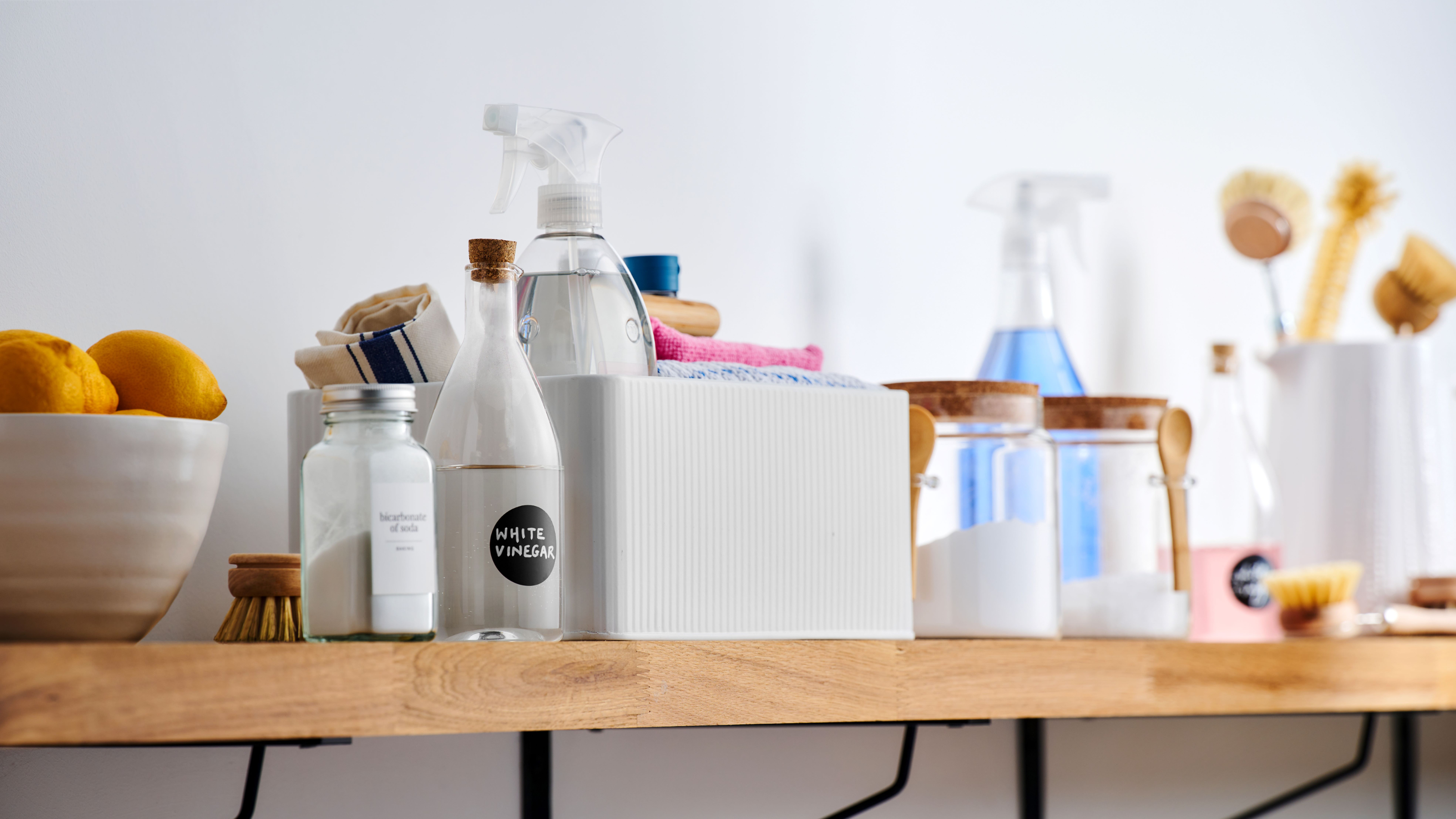

If getting the cleaning done lives on your mental ‘to do’ list, it’s time to re-frame it with mindful cleaning. It might sound like another 'woo-woo' term but with a different perspective and purpose, cleaning can make you happy. Truthfully!
’A monk’s day begins with cleaning,’ says Shoukei Matsumoto, a Buddhist monk at the Komyoji Temple in Kamiyacho, Tokyo and author of A Monk’s Guide to a Clean House and Mind. ‘We do it to eliminate the gloom in our hearts.’
In 2015, scientists found a link between ritualised behaviour, such as repetitive cleaning tasks, and the reduction of anxiety. Martin Lang, who led the team of researchers at the University of Connecticut, says, ‘When people face some uncertain and uncontrollable situations, it stresses them because they can’t predict what will happen. As humans, our goal is to be able to predict and adapt to what is going on. That’s why we think rituals might be a way to get control over your environment.’
Mindful ways to clean your home
Instead of cleaning hard and fast, trying to get it done as quickly as possible, slow things down. Focus on the process, not the outcome. Having a sparkling home at the end of it is just a bonus! These strategies are recommended by experts to make each task reflective, meaningful and life enriching…
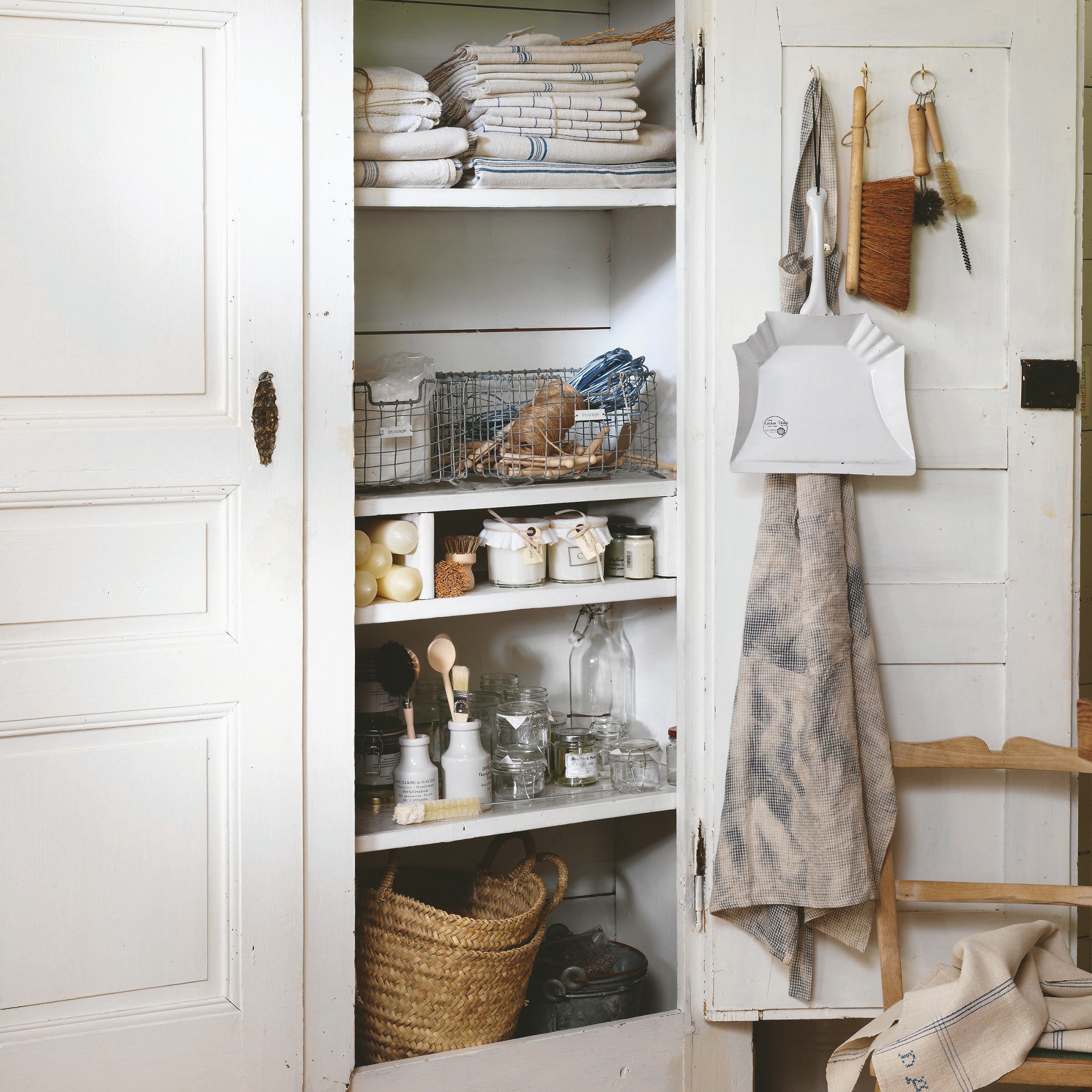
1. Just clean, and nothing more
You might be a master of multitasking, but mindfulness is about being in the moment and giving your full focus to just one thing at a time. That means switching off the radio or podcast while you’re cleaning, and switching off your racing thoughts, too.
A 2010 study by Harvard psychologists found that we are happiest when we are mentally present – our thoughts and actions are aligned. Reporting on the study in Scientific American, Jason Castro wrote, ‘A person who is ironing a shirt and thinking about ironing is happier than a person who is ironing and thinking about a sunny getaway.’
2. Find meaning in cleaning
A classic mindfulness strategy is to set a mindful intention before you start cleaning. For example, ‘As I clean, I am filling my space with positive energy’ or ‘I am cleaning to create a space to be my best self.’
Sign up to our newsletter for style inspiration, real homes, project and garden advice and shopping know-how
Caroline Caron-Dhaouadi, founder and director of professional organising company Homefulness, says, ‘Cleaning can be drudgery, but it can also be nurturing yourself and your family. Have the right mindset: by cleaning, you are taking care of yourself and your loved ones. Do your work with gratitude and compassion.
'Remember to be grateful for what you have, for being able to clean or declutter. If you have kids, yes, they are messy, but you are grateful for them. Then remember you’re cleaning out of compassion for yourself and the people in your life. This is your intention, and it will help you remember to be mindful.’
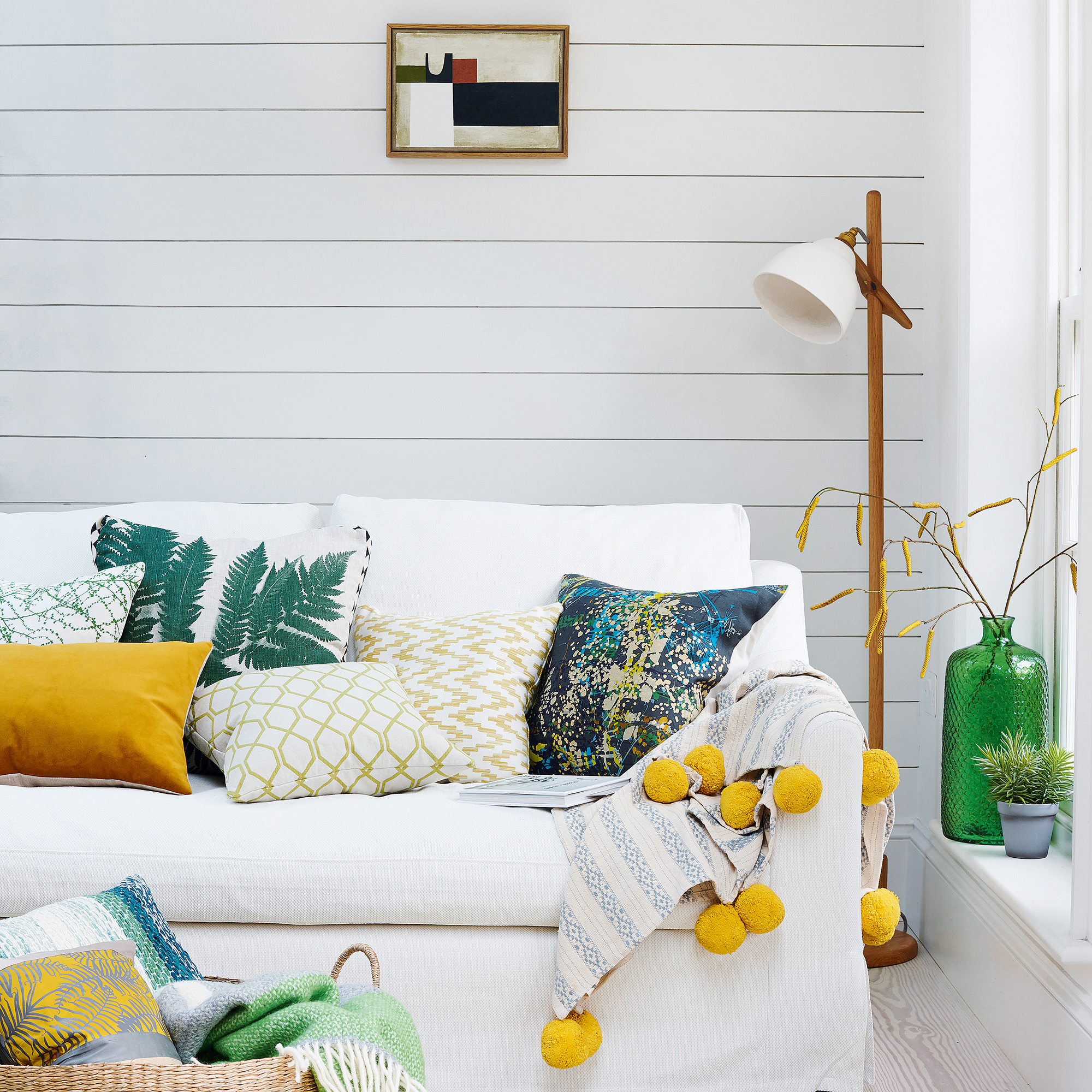
3. Choose slow, repetitive tasks
Think of the most boring tasks and embrace the monotony to make them part of your mindfulness practice. Author, mental health advocate and cleanfluencer Harriet Knock explains, ‘Cleaning is a distraction and coping mechanism. It helps me to switch off my focus from internal thoughts and worries, and focus on the external task at hand. You can turn that negative energy into something productive and positive. I love the fact that it’s fully flexible, too. Unlike most hobbies where I’d need to find childcare or physically go somewhere to take part, I can do it whenever I please.’
To be in the moment, avoid anything that requires puzzling out or a lot of physical effort and go for slow, satisfying tasks such as dusting or polishing (wood, metal, cutlery, glassware, shoes), washing-up or hand-washing, cleaning windows/glass.
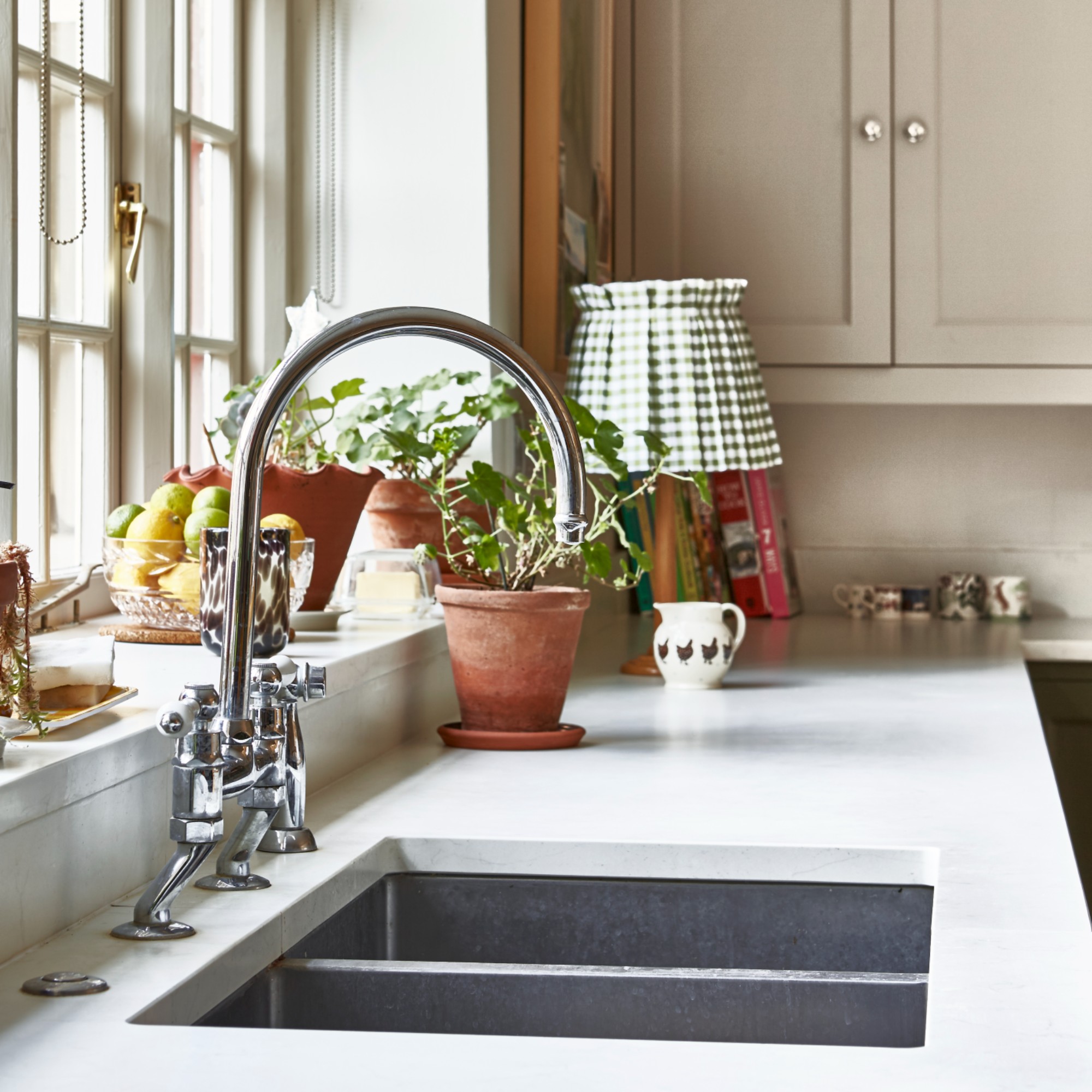
4. Make it a sensory experience
Add aromatherapy to your mindful cleaning by diffusing essential oils as you work, or cleaning with essential oils that include scents to influence your mood.
Neuroscientist Tara Swart says, ‘Lavender is the strongest natural neuro-modulator, which means it can calm you if you are anxious and lift you if you are feeling low. Citrus scents are generally uplifting and rose is known for inducing optimism, but smell is very personal. For you, it could be the smell of baking or freshly cut grass, depending on the memories you associate with them.’

Dr Tara Swart is a neuroscientist, medical doctor, executive adviser, senior lecturer at MIT Sloan and author of bestseller The Source: Open Your Mind, Change Your Life.
5. Use natural cleaning products
Treat your home and yourself mindfully by using non-polluting cleaning products. Cleaning sprays contain VOCs (volatile organic compounds) and aerosols use propellant chemicals which over time can be harmful in poorly ventilated spaces.
When we asked Nicola Carslaw, Professor in Indoor Air Chemistry at the University of York how to improve the air quality in your home, she recommended switching from spray cleaners to cream cleaners. In addition, she says, ‘Eco-friendly cleaners often contain as many fragrance compounds as regular cleaners, so are unlikely to reduce your exposure. Look for unscented products instead.’
Even better, make your own natural cleaning products as part of your mindful cleaning session. Lemons, cucumber, vinegar and newspapers are just a few of the natural cleaning hacks you probably already have available to make your home sparkle.
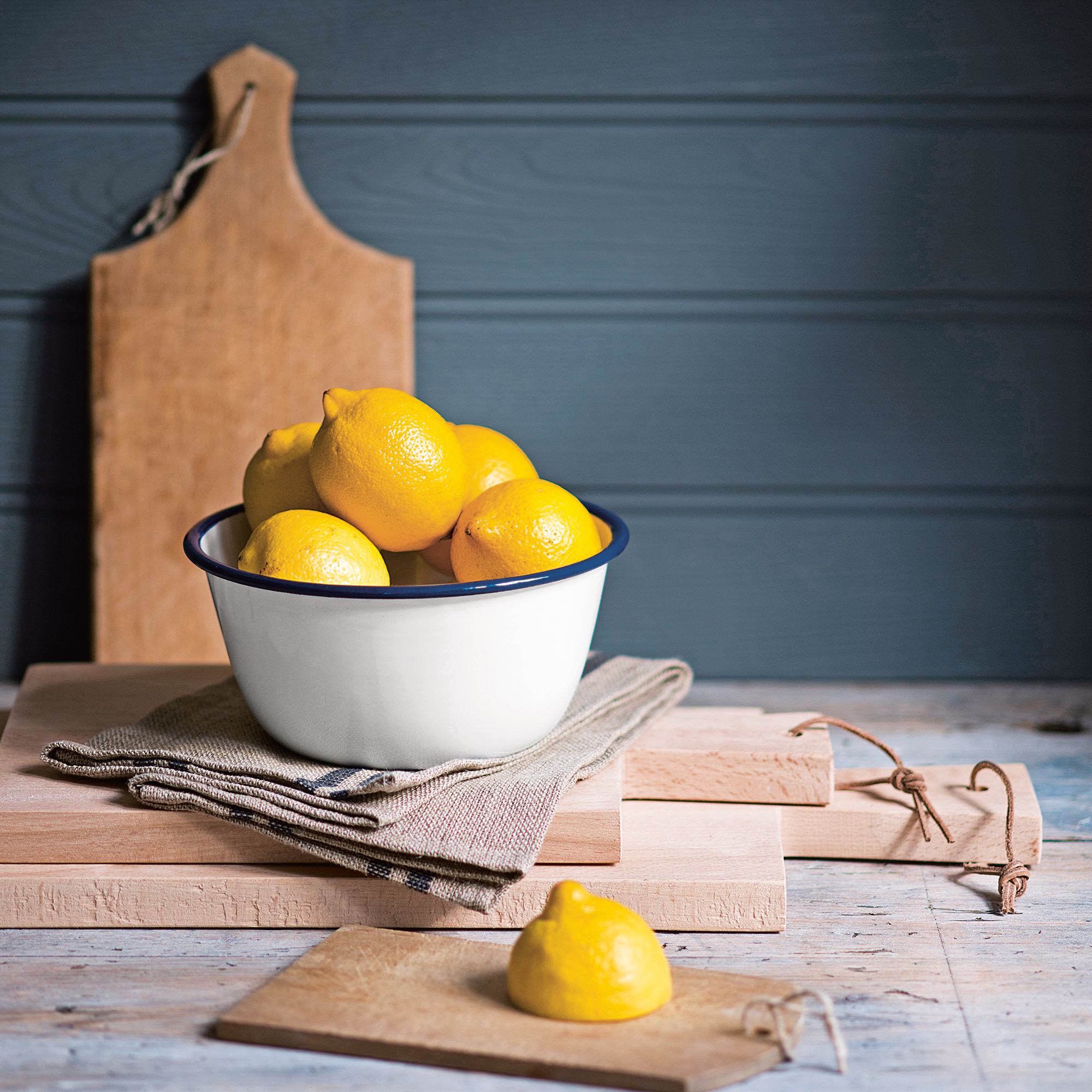

Professor Carslaw gained her BSc, MSc and PhD at the University of East Anglia. Her current research at the University of York focuses on indoor air pollution. She is a member of the UK Committee on the Medical Effects of Air Pollution and has advised the SAGE Environmental Modelling Group on air cleaning impacts on indoor air quality in relation to the Covid-19 pandemic.
6. Choose tasks with mental health in mind
Harriet Knock comments, ‘I self-manage my anxiety and generally cope pretty well, but there are times when it feels more difficult and I need to lean on my safe coping mechanisms (like cleaning) to feel better.
‘My go-to tasks are anything that doesn’t feel too overwhelming and provides an instant visual result. It reminds me that no matter how dull something gets, you can always get the shine back with a little effort. It’s also true when referring to someone going through a rough patch with their mental health – hang in there, you’ll soon get your spark back and life will be brighter again.’
7. Make it a daily habit
When there’s a danger of overwhelm and decision fatigue paralysing you into inaction, the 10-minute clean is a great strategy. Alex Bothwell, cognitive behavioural therapist at Oxford CBT says, ‘Breaking up cleaning tasks into smaller, achievable goals can stop them feeling overwhelming and help to support motivation. Having a schedule to specify your goals and make it more likely that you will complete them.’
Just focus on one thing, and do it well in your allotted 10 minutes. ‘Also,’ adds Alex, ‘remember to enjoy your tidy and organised space and recognise your achievement of cleaning.’
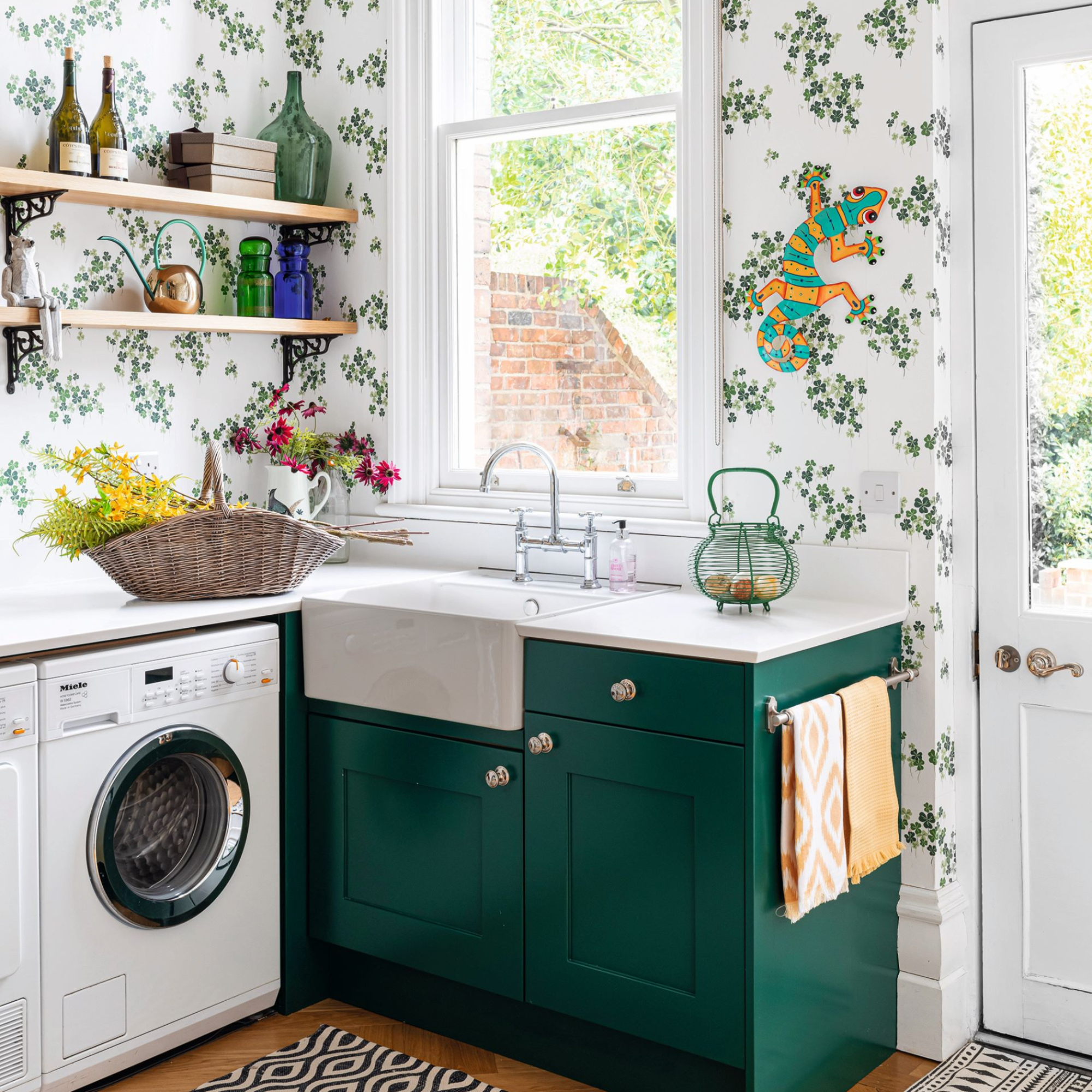
FAQs
What is the benefit of cleaning mindfully?
Mindfulness coach Kate Greenslade explains, ‘Mindfulness slows us down by reconnecting us with the present moment, giving us the opportunity to notice more. When we simply sit in a room without distractions, we have space to notice all of our senses, and to become more aware of what we love about our home and what we'd like to change. We are more able to feel into what brings us joy.'

Kate Greenslade is an International Coaching Federation accredited transformational coach, a certified MBSR teacher and is registered with the British Association of Mindfulness Based Approaches. Kate holds a First Aid for Mental Health certificate and has undertaken the following certifications: Trauma Sensitive Mindfulness, The Neuroscience of Change, The Wisdom of Trauma, Reiki level 1 and Public Speaking training and coaching.
'Another mindfulness attitude is to use a beginner’s mind. We can use this to see our space with fresh eyes. We get blind spots when we’re so familiar with the space we live in. Over time we stop seeing the clutter and dust around us, so this technique helps to refresh our view and make choices based on this renewed viewpoint.’

Vanessa Richmond has been a freelance writer, editor and editorial consultant since 2021. Her career in magazines began in 1998 and, apart from a four-year stint at women’s lifestyle magazine Red, it has been spent working on interiors titles including House Beautiful, Country Homes & Interiors and Style at Home. She is a former editor of Ideal Home, Country Homes & Interiors and Style at Home magazines. She has also worked for House Beautiful and Red. During her 25 years as a journalist, she has been a sub-editor, columnist, deputy editor and editor. Now she combines freelance writing with being a secondary-school English teacher.